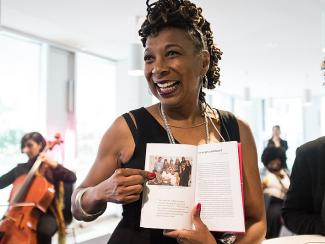
When Kimberlé Crenshaw blessed the world with the theory of “intersectionality” in 1989, it upset white people - and earned a collective sigh of relief and appreciation from people of color everywhere.
There was finally a term to describe the ways that, for example, not all women experience womanhood or sexism in the same way! Black women face a specific intersection of womanhood AND Blackness that mainstream feminism has always ignored.
This has long been true in many communities, who want to ignore our differences and say “we’re all the same,” when that’s clearly not true. We don’t just have one identity - our age, race, language, culture, sexuality, disability, education level, etc. all exist in us at the same time, and impact each other!
America has always wanted us to “quit pulling the race card” or “stop bringing race into everything.” But race AFFECTS everything! The theory of intersectionality is a powerful remedy to “color-blindness,” and its power forever changed race theory.
It was even added to the dictionary in 2015.
The theory will hopefully be reaching an even wider audience soon, thanks to a new book coming out next year.
Hopefully “On Intersectionality: Essential Writings,” Crenshaw’s new book, will inspire a new generation of activists and thinkers to be unapologetically Black, reject “color-blindness,” and insist our experiences be taken into account when we discuss critical issues!